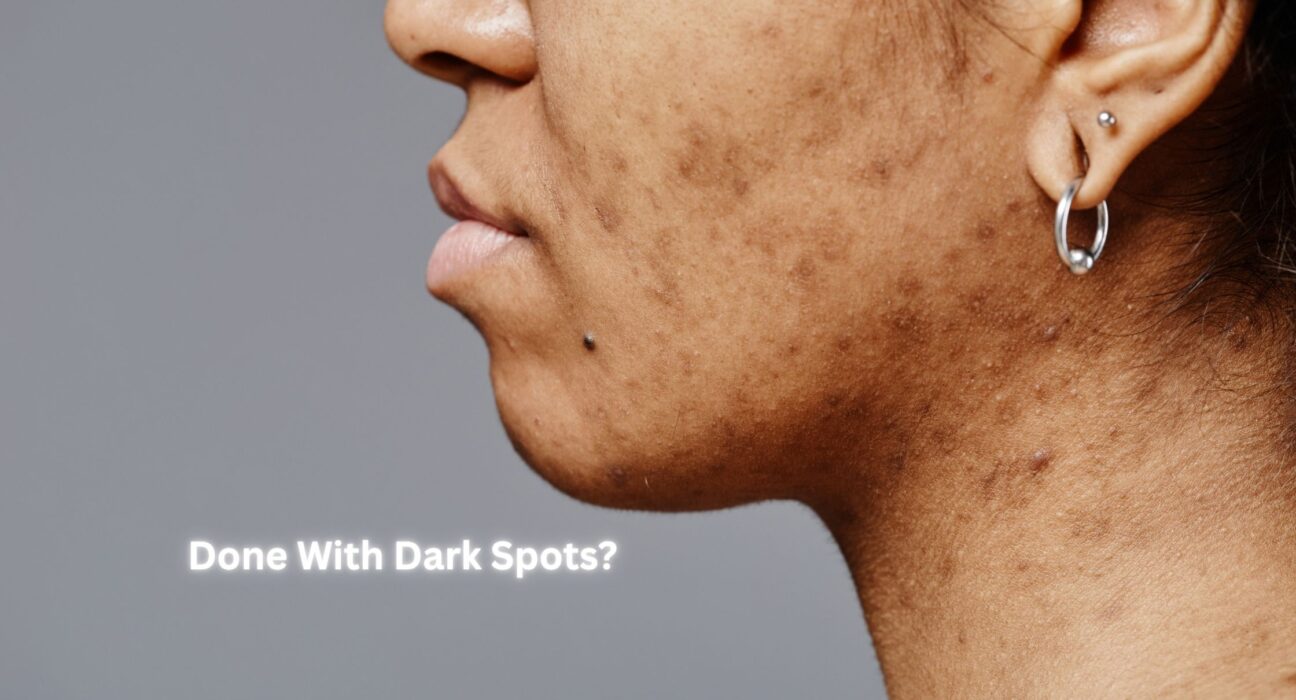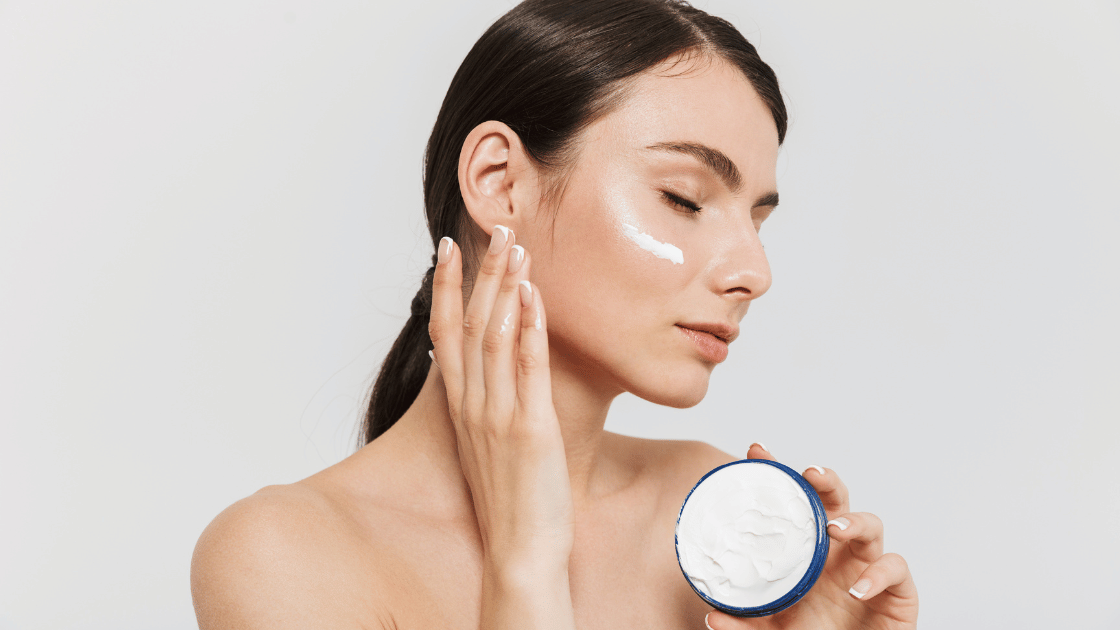Pigmentation on Face: Causes, Prevention, and Effective Treatments

Skin discoloration and pigmentation, particularly around the eyes, is a regular problem that people are faced with regardless of age and type of skin. It usually manifests as patches of darkening, spots, or uneven skin tone, which can affect one’s self-esteem. Although it’s painless at first, the appearance of pigmentation may occasionally indicate more serious skin issues and can also be an effect of environmental factors. The positive side is that with the right knowledge and regular routines for skin the appearance of pigmentation can be successfully managed and, in some instances, reversed regular preventative and natural treatments.
This article we’ll look at the many issues associated with pigmentation, the options available to combat it, as well as the most effective and efficient natural treatment options. It doesn’t matter if your appearance is due to the sun or hormonal imbalances or inflammation, or many other causes knowing the root causes can aid in the selection of the best treatment. Moreover, you will also come across simple home remedies, and lifestyle changes alongside dermatologist-recommended treatments aimed at an even skin tone and a radiant complexion.
If you’re sick from dark circles and are feeling that you need to cover it with costly makeup or creams that do not are effective, you can discover effective ways to reduce the appearance of your pigmentation with this guide. To have clearer and more radiant skin, check out the following sections and you’ll discover ways to regain confidence.
What Is Pigmentation?
It also refers to the shade of the skin that is controlled by melanin pigment. Melanin is produced by melanocytes, which also determine the skin, hair and the color of their eyes. When melanocytes are sensitive they release excessive melanin that causes spots or dark patches. This is referred to as hyperpigmentation.
The most common types of pigmentation include:
- Melasma- This is caused by hormonal changes that are usually observed during pregnancy.
- Sunspots- The sunspots result from long and excessive exposure to sunlight.
- Post-inflammatory hyperpigmentation (PIH)This occurs following skin traumas like acne or an eczema flare.
- The identification of the kind of pigmentation a person has is crucial as it will help in determining the best treatment or cure.
Common Causes of Skin Pigmentation
There are many reasons for skin pigmentation. These are the most commonly reported:
1. Sun exposure
Exposure to sunlight that isn’t protected could cause skin to develop age spots or sunspots as the result of ultraviolet (UV) light that stimulates melanin.
2. Changes in hormones
Utilizing hormonal contraceptives, or becoming pregnant are times in your life that cause changes in progesterone as well as estrogen levels. This can, in turn, cause a kind of skin pigmentation called Melasma.
3. Trauma and skin inflammation.
Skin injuries like eczema or acne and cuts can cause post-inflammatory hyperpigmentation. This is particularly common among people with darker skin tone.
4. Some Medications
Anti-seizure medications or chemotherapy drugs, in conjunction with certain antibiotics, could alter the skin’s pigmentation, which is a result of a secondary reaction.
5. Family History
Certain individuals could have an ancestral history of hyperpigmentation and therefore are more likely to suffer from the condition on their own.
6. Older Age
As we age, our skin begins to show signs of discoloration because of prolonged sun exposure, reduced cell turnover, as well as 10. diminished metabolism.
How to Remove Skin Pigmentation Naturally
If you’re seeking organic and chemical-free solutions these remedies could aid in reducing the appearance of pigment as time passes:
1. Aloe Vera Gel
Aloe vera contains aloin, a natural depigmenting agent. Apply fresh aloe vera gel to dark spots before going to bed, and wash it off in the morning.
2. Potato Juice
Potatoes are high in catecholase enzymes that help to lighten the skin. Apply pure potato juice directly to areas that are prone to pigmentation at least twice per day.
3. Turmeric and Milk
Turmeric is anti-inflammatory and may inhibit the production of melanin. Mix 1 tsp turmeric and milk to make the consistency of a paste. Apply it on the face.
4. Lemon and Honey
Lemon is a natural bleaching agent Honey is a moisturizer for the skin. Mix equal parts, and apply it to the affected areas. Avoid those with sensitive skin.
5. Green Tea Extract
The antioxidants in green tea can reduce melanin production. Dab cool green tea bags over your body for five – 10 mins every day.
6. Cucumber Juice
Cucumber soothes skin and assists in fading dark spots. Apply slices of cucumber or juice directly to the face.
Pigmentation Treatment at Home (Non-Natural)
If you’re searching for generic solutions for home use that do not require natural ingredients, you should consider:
1. Vitamin C Serums
They reduce the amount of the appearance of skin and even it out by reducing melanin production.
2. Retinoids
Originated from Vitamin A, retinoids help accelerate cell turnover, and diminish hyperpigmentation as time passes.
3. Niacinamide
A type that contains Vitamin B3 that reduces inflammation and inhibits melanin exchange.
4. Azelaic Acid
Effective treatment of acne-related melasma pigmentation.
5. AHA/BHA Exfoliants
Salicylic and glycolic acids help remove dead skin cells, and improve the skin’s texture, assisting with the fade of pigmentation.
Always consult a dermatologist prior beginning any active ingredient regimen particularly if you suffer from sensitive skin.
Hyperpigmentation Treatment Options by Dermatologists
For severe or persistent coloration, professional treatment options can deliver faster and better visible outcomes:
1. Chemical Peels
Dermatologists utilize acids like glycolic and lactic acid to remove the skin’s top layers, while reducing dark spots.
2. Microdermabrasion
Mechanical exfoliation technique which removes dead skin cells, and also promotes the process of regeneration.
3. Laser Therapy
The targeted light energy is used to break melanin deposits that are found in the skin. This is the best method to achieve deep pigmentation.
4. Microneedling
Tiny needles increase collagen production and enhance absorption of serums for lightening such as Vitamin C or Hyaluronic acid.
5. Prescription Creams
Dermatologists can prescribe hydroquinone Kojic acid, or tretinoin as long-term treatments.
Home Remedies for Pigmentation You Can Try Safely
In addition to the options previously mentioned There are other natural alternatives:
-
Apple cider vinegar: Combine with water, then apply it to dark areas to get the acetic acids benefits.
-
Papaya Mask: It contains enzymes that can aid in exfoliating and regenerating the skin.
-
Sandalwood Paste Popular by its lightening effects on the skin.
-
Licorice Extract: Reduces melanin and helps treat melasma.
Utilize these treatments consistently for several weeks to see outcomes.
Prevention Tips to Avoid Pigmentation
The process of preventing pigmentation is much easier then treating the problem. Here’s how:
1. Always Wear Sunscreen
Make sure you are using a broad-spectrum SPF 30 or greater daily, even in indoors.
2. Avoid Picking Pimples or Scratching Skin
This could exacerbate inflammation, and can lead to PIH.
3. Maintain a Healthy Skincare Routine
Cleanse, moisturize and exfoliate often.
4. Eat Antioxidant-Rich Foods
Include leafy greens, berries as well as nuts to promote healthy skin from the inside.
5. Stay Hydrated
Skin that is dehydrated is more susceptible to discoloration and uneven tone.
Lifestyle Tips for Even-Toned Skin
-
Sleep Well: Poor sleep affects skin regeneration.
-
manage stress: Cortisol levels rise when stressed, which can cause skin issues.
-
Limit sugar and processed food items: These can worsen inflammation and increase pigmentation.
-
Regular exercise: Improves blood flow and the health of your skin.
When to See a Dermatologist
If you’re not sure:
-
Covers a vast area
-
It appears in a flash
-
Changes in texture or color
-
The problem doesn’t go away with home remedies.
it’s the right time to talk to a dermatologist for a custom treatment strategy.
Conclusion
Pigmentation on the face can be distressing, but it’s not irreversible. By understanding the causes and adopting the right combination of home remedies, skincare practices, and professional treatments, you can restore your skin’s natural glow. Whether you’re aiming to lighten sunspots, hormonal melasma, or post-acne marks, consistency and care are key. Always prioritize sun protection and patience as you work toward even-toned, radiant skin.







